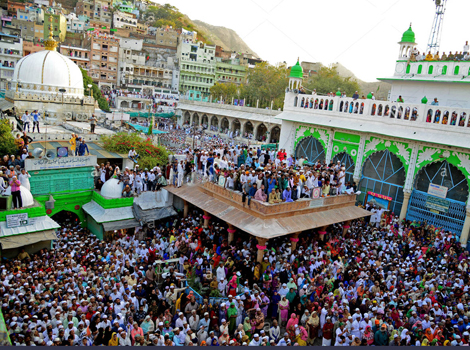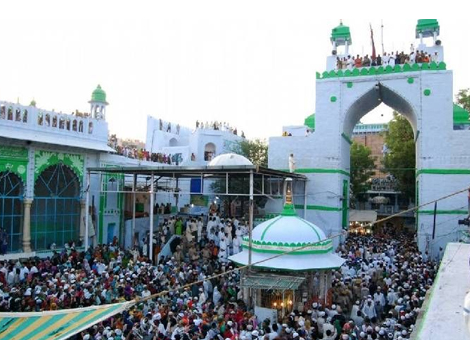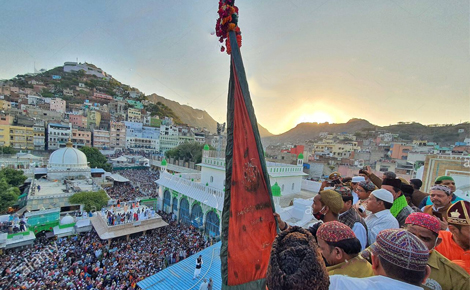- Home
- About Us
- Ajmer Dargah Ceremonies

Ajmer Dargah Ceremonies
There are four main activities performed daily in the dargah which are Khidmat, Roshani, Langer, Sama Qawwali and Quran recital. These activities are performed at every part of the world without fail.
These daily programs (ceremonies) bring us near to the Almighty God. They are really helpful in our spiritual awakening. Such assemblance provides people a chance to associate with holy saints, to earn their blessings which is essential for their spiritual progress.
Now let’s see some insights about the daily ceremonies,
When the tomb is opened in the morning at 4.00 a.m. Then “Khidmat” ceremony is performed. At this time only the Khadims can enter the tomb for service, whereas other people wait outside the tomb. At this point of time, people can stay in the dargah and wait in the dargah. The Khadims go inside to clean the shrine and offer fresh flowers to the tomb.
This ceremony is again repeated at 3.00 p.m. Now apart from the morning procedure Khadims also offer sandalwood along with the recitation of Fateha. The sandalwood is then distributed to the visitors. The ladies are not allowed entry at this time.
After that in the evening khudam brings candle inside the tomb and the drums are sounded in the foreplay. This is named as “Roshani” where these candles are then placed in lamps and some Persian prayers are offered.


The closing of the tomb is called with the name “Karka”. This ceremony includes singing of Qawwali (Karka). The devotees inside the tomb are made to go out for Khadims to clean the tomb. This starts with the ringing of bell at the fifth part of night.
The daily ceremonial at Dargah involves free food distribution, during which they offer wheat porridge cooked in a particular way. This porridge is notable because it is the same oatmeal that Khawaja Baba consumed. When Emperor Akbar visited Khawaja Baba's Mazar, like any other regular man, Akbar also used to stand in a row to get Langer.
Everyday there are two very important ceremonies which are recitation of Qawwali and reading of Holy Quran.